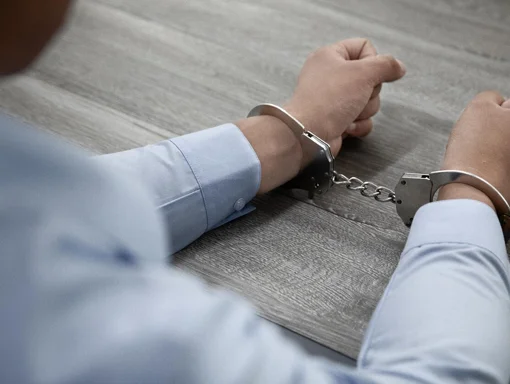Collin County Theft Defense Lawyer
When you’re accused of theft in Collin County, finding the right legal representation is crucial. A skilled Collin County Texas theft lawyer can be the difference between a conviction and a favorable outcome. Finding the right attorney when facing theft charges in Collin County is paramount for several reasons. An experienced Collin County Texas theft lawyer will understand the complexities of local laws and will have familiarity with the court system and its officials, which can be instrumental in your case. They can offer a strategic defense based on a deep understanding of legal precedents and the nuances of your specific situation.
Ultimately, the right legal representation can make a significant difference in the outcome of your case, potentially affecting your freedom, financial stability, and future. That’s why it’s crucial to find an attorney with the right experience and approach to defend you effectively in court.
At Collin County Law Group, we want to be your advocate, tirelessly fighting to get you the results you deserve. To speak with our team, give us a call today at 945-207-3705.
Understanding Theft Charges in Collin County, Texas
 Theft in Collin County, Texas is legally defined as the unlawful appropriation of property intending to deprive the rightful owner. The severity of the theft crime charges is determined by the value of the stolen property, ascertained based on its fair market value at the time of the theft. Understanding these charges and their potential implications is the first step in mounting an effective defense.
Theft in Collin County, Texas is legally defined as the unlawful appropriation of property intending to deprive the rightful owner. The severity of the theft crime charges is determined by the value of the stolen property, ascertained based on its fair market value at the time of the theft. Understanding these charges and their potential implications is the first step in mounting an effective defense.
Class C Misdemeanor Theft
Class C misdemeanor theft in Collin County, Texas is defined by the Texas Penal Code § 31.03. It is classified as a Class C misdemeanor if the value of the stolen property is less than $100. Offenders may face a fine of up to $500 for this offense.
Cases of Class C misdemeanor theft typically involve petty shoplifting or small-scale retail theft, where the stolen items are valued at less than $100. First-time theft crimes are typically resolved by levying a fine of up to $500.00. These cases are commonly adjudicated in municipal or justice of the peace courts. However, if the value of the stolen items is higher, it may escalate to a Class B misdemeanor theft charge.
Felony Theft Offenses
The severity of theft charges escalates when the value of goods or services allegedly taken exceeds $2,500, at which point the offense becomes a felony. Collin County Law Group conducts exhaustive investigations for severe theft charges, which can include:
- Collecting evidence
- Interviewing
- Examining surveillance footage
- Analyzing relevant information
A conviction of first-degree felony theft can carry heavy penalties, which may involve state jail time spanning from 180 days to 2 years, in addition to a fine of up to $10,000.
Aggravating Conditions for Theft Offenses
Certain aggravating conditions can significantly escalate the severity of a theft offense in Collin County, Texas. Unlawfully taking property from certain individuals or entities, such as shoplifting, larceny, petty theft, grand theft, stealing, or robbery can lead to more severe criminal charges and potential consequences. Robbery and aggravated robbery, in particular, are notable aggravating conditions that can lead to extended prison sentences and increased fines.
There have been instances in Collin County, Texas, where charges such as aggravated assault with a deadly weapon and aggravated robbery were considered as aggravating conditions in theft offenses, impacting the severity of the charges.
Collin County Law Group’s Theft Defense Approach
Collin County Law Group provides legal support for individuals accused of property theft. Our dedicated team of Collin County theft lawyers provide support in your defense. We believe in adopting a comprehensive approach to defending theft cases, which involves challenging the evidence, scrutinizing the credibility of witnesses, and offering alternative explanations for the alleged theft.
Investigating Your Case
A successful defense requires a thorough investigation of the circumstances surrounding the theft charge. Our criminal defense lawyer meticulously reviews the evidence and testimonies, identifies procedural errors, and uncovers any discrepancies or unreliable aspects within the prosecution’s case.
Establishing the accused’s knowledge of taking stolen property to demonstrate the essential element of ‘mens rea’ or criminal intent is commonly sought evidence during a theft case investigation.
Crafting a Strong Defense Strategy
Following an exhaustive investigation, we collaborate with you to formulate a defense strategy tailored to your unique situation and needs. Essential components to consider when developing a robust defense strategy for theft charges include:
- Claim of right or ownership
- Lack of purpose
- Mistaken identity
- Insufficient proof
- Duress
- Valid claim of right
Our aim is to identify and exploit vulnerabilities in the prosecution’s case, challenge the credibility of the evidence, present evidence to demonstrate a lack of intent, negotiate for reduced charges or alternative sentencing, seek suppression of unlawfully obtained evidence, and establish a compelling alibi or evidence of mistaken identity.
Representing You in Court
Our seasoned criminal lawyers represent you robustly in court, championing your rights and interests. We offer legal assistance to individuals facing allegations of stealing another’s property. Our dedicated team of theft lawyers can offer support in your defense. We understand court procedures, such as:
- Rules for hearings
- Appearances
- Pre-trial motions
- Procedures after a defendant has been released on bail or bond
Understanding initial appearances, pleas, citation disputes, trial procedures, continuances, and the repercussions of court no-shows is vital for attorneys representing defendants.
Consequences of a Theft Conviction in Collin County, Texas
A theft conviction in Collin County, Texas could result in a criminal record with substantial repercussions. Depending on the severity of the offense, consequences may include a state jail felony with potential imprisonment of 180 days to two years and fines up to $10,000, or more serious penalties for higher-level felonies, such as third-degree felonies that can result in two to 10 years of imprisonment and substantial fines.
The impact of a theft conviction in Collin County, Texas on employment opportunities can be substantial. The severity of the theft charge, ranging from misdemeanors to felonies, can present challenges in securing or maintaining employment, particularly if there are prior offenses leading to escalated theft convictions.
Criminal Record Implications
In Texas, a theft conviction on an individual’s criminal record could result in various penalties such as fines, imprisonment, probation, and difficulties in obtaining employment, housing, and loans. Additionally, it has the potential to significantly impact the individual’s reputation, influencing both personal and professional relationships.
In the state of Texas, a theft conviction has the potential to appear on background checks, impact your ability to successfully pass employment screenings, and affect other checks that necessitate a clear criminal history.
Employment Consequences
A theft conviction in Collin County, Texas might significantly impact your employment. It may result in termination by your current employer due to incarceration or the criminal conviction. Additionally, it can negatively impact future job opportunities, particularly in industries like retail or finance, as employers may be wary of hiring individuals with a theft conviction.
In Texas, while federal law and the laws of many states limit how employers can factor in criminal records in employment decisions to prevent discrimination, Texas does not offer legislative protections for private employment. Consequently, employers in Texas may potentially use a theft conviction against job applicants, but this practice could be subject to scrutiny if it results in discrimination based on race, color, religion, sex, or national origin, as enforced by the EEOC.
Common Defenses Against Theft Charges in Collin County, Texas
When contesting theft charges, exploring every possible defense is essential. Common defenses against theft charges in Collin County, Texas, include lack of intent, mistaken identity, and insufficient evidence. Each defense requires a comprehensive understanding of the law and meticulous planning to be effectively used in court.
Lack of Intent
Arguing that the defendant did not have the intent to commit theft can be a successful defense strategy in some cases. Lack of intent in theft cases in Collin County, Texas, is determined by the absence of specific intention to unlawfully appropriate property with the aim of depriving the owner of it by the defendant. Establishing a lack of intent often requires demonstrating that the defendant’s mental state and motivations did not align with the intention to commit theft at the time of the alleged crime. This can be accomplished by:
- Presenting evidence of the defendant’s lack of motive or opportunity to commit theft.
- Providing witness testimony or opinions that support the defendant’s claim of lack of intent.
- Challenging the prosecution’s evidence and arguments regarding the defendant’s intent.
While establishing lack of intent can be difficult, it is not impossible. With a strong defense strategy and the right evidence, it is possible to successfully argue lack of intent in a theft case.
Mistaken Identity
Mistaken identity can be a valid defense if the defendant can prove they were not the person who committed the theft. The defense attorney asserts that a witness, either intentionally or unintentionally, incorrectly identified the defendant as the perpetrator of the crime. Mistaken identity in theft cases can be established through various methods, including:
- Examining inconsistencies in witness statements
- Presenting alibi evidence
- Analyzing surveillance footage
- Conducting DNA analysis
Insufficient Evidence
Insufficient evidence may lead to a dismissal or reduction of charges if the prosecution cannot prove the defendant’s guilt beyond a reasonable doubt. Your attorneys can file a motion to dismiss and challenge the substantial evidence for each element of the offense.
During this process, new evidence or witnesses are introduced to create reasonable doubt.
How Collin County Law Group Can Help You
Collin County Law Group provides tailored legal representation to each client, based on their specific situation, to achieve the greatest possible outcome in theft charges. We believe in prioritizing personalized support, maintaining open communication, and availability throughout the legal process.
While facing theft charges in Collin County, Texas can be a daunting experience, understanding the charges and potential consequences, and having a comprehensive defense strategy can go a long way in securing a favorable outcome. Whether it’s a Class C misdemeanor or a more severe felony theft charge, Collin County Law Group has the dedication to provide you with a robust defense strategy.
To seek assistance with a theft charge, you can reach out to us at Collin County Law Group by calling 945-207-3705 to schedule a consultation regarding your case.
Remember, you don’t have to face this alone. With our personalized legal representation and proven track record, we can help you navigate through this challenging time. Contact us today.
Frequently Asked Questions
How long does theft stay on your record in Texas?
Theft stays on your record for life in Texas, but there are options to remove or seal the offense, such as through expungement or non-disclosure. In terms of employment, a Texas employer’s background check typically goes back 7 years for criminal history.
What is the statute of limitations on theft in Texas?
In Texas, the statute of limitations on misdemeanor theft is 2 years. For felony theft charges it is 5 years. This means charges must be brought within 2 years of the date of the alleged offense for misdemeanor theft and within 5 years of the alleged felony theft.
What is a citation for theft under $100 in Texas?
In Texas, theft of property worth less than $100 is considered a Class C misdemeanor. Offenders are typically issued a citation and given a court date, rather than being arrested.
What differentiates Class C Misdemeanor Theft from Felony Theft Offenses in Collin County, Texas?
In Collin County, Texas, the difference between Class C Misdemeanor Theft and Felony Theft Offenses lies in the value of the stolen property. Class C is for property valued under $100, while a felony is charged for property exceeding $2,500.
Can I be charged with theft if I intended to return the property in Collin County, Texas?
In Collin County, Texas, the intention to return the property does not negate the act of theft. If the property was unlawfully appropriated with the intent to deprive the owner, even temporarily, it can still be considered theft. However, intentions may be considered during sentencing or may influence the decision to prosecute.





